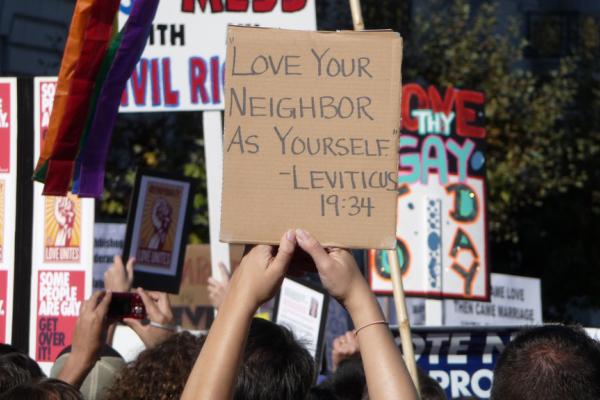Editor's Note: Since original publication of this piece, Indiana lawmakers have announced changes to the Indiana RFRA legislation that includes anti-discrimination language.
Last week Indiana found itself at the center of the news cycle for all the wrong reasons. With Gov. Pence’s signing of the state's Religious Freedom Restoration Act, our nation once again found itself taking sides in the debate over LGBTQ rights.
Honestly, I’m torn over this issue. I understand that the Indiana bill was fashioned after the 1993 bill that was signed into federal law by Bill Clinton. I know that 19 other states have RFRA legislation. And, as a pastor, I support religious freedom, not just for Christians, but for Buddhists, Muslims, Jews, and yes, even Westboro Baptists. I think most Americans support protecting individuals' rights to conscientiously practice their faith. Freedom of religion is one of the things that makes this country great, and that freedom is worth protecting. But this bill, supposedly enacted to protect those freedoms, has caused quite the stir. Even more interesting to me are the people I follow on social media who are much more interested and knowledgeable than me in politics who say Indiana’s RFRA won’t amount to significant change. This raises the very simple question, “Then why pass the bill?”
Read the Full Article

